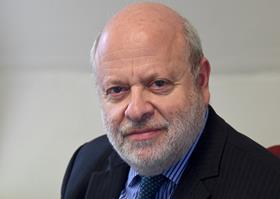Last week, the CJEU issued a very significant judgement on the rule of law and the separation of powers (and several other things) in relation to the European arrest warrant, in Joined Cases C‑508/18 and C‑82/19 PPU.

The judgment dealt with big ideas. First, it said that the rule of law is based on the separation of powers between the executive and the judicial authorities – and if there is no separation, acts of those judicial authorities should not be recognised across borders for the purpose of certain EU instruments.
Second, it said that although mutual recognition of each other’s legal systems is one of the EU’s basic principles, allowing much free movement of acts, goods and people, it nevertheless does not mean that sovereign countries can organise their affairs in any old way, if that way does not comply with the principles of the rule of law.
This decision did not cover a newer member state, as you might imagine from the repeated mentions of the rule of law, given how the European Commission is pursuing Poland and Hungary for their governments’ interference with the judiciary, but touched on mighty Germany itself, one of the founders of the union.
The cases arose out of EAWs issued by the public prosecutor’s offices of Lübeck and Zwickau. The questions posed by the Irish Supreme Court to the CJEU included whether it was necessary for the judicial authority which issues an EAW in a member state to be independent from the executive. This is because, under Germany’s federal structure, the judicial authority issuing the EAW is not a judge or court but a public prosecutor’s office subject to a possible direction or instruction, either directly or indirectly, from its local ministry of justice.
The key sentence of the judgment is the following:
‘the ‘issuing judicial authority’ … must be capable of exercising its responsibilities objectively, taking into account all incriminatory and exculpatory evidence, without being exposed to the risk that its decision-making power be subject to external directions or instructions, in particular from the executive, such that it is beyond doubt that the decision to issue a European arrest warrant lies with that authority and not, ultimately, with the executive’.
The German government did not deny that the ministries of justice in the Lände concerned had such power (the public prosecutor’s offices come under local Land ministries). They gave as an example of ministerial interference the matter of proportionality of issuing an EAW in the first place. Because of safeguards, the circumstances in which ministerial interference could occur are extremely rare. Nevertheless, the possibility still exists, even though no actual instruction or interference took place in these cases.
This judgement is important for a number of reasons. First, it shows again how the EAW, the first concrete measure in the field of criminal law implementing the principle of mutual recognition, and considered by many as the cornerstone of judicial cooperation, has thrown up awkward issues about the rule of law. A previous line of cases on fundamental rights concerns inhuman or degrading prison conditions which permit courts responsible for executing EAWs to refuse to surrender requested people, and there is also the recent judgment permitting refusal to surrender following Poland’s changes to its judiciary (Case C-216/18 PPU).
Second, and maybe most importantly, it is a powerful restatement of how the rule of law – in this case the principle of the separation between executive and judicial authorities - underpins the legal structure of the EU, and so can be called upon to prevent EU instruments from operating, for instance in the return of a requested person from an executing state to an issuing state.
And, finally, there may be carry-over to other EU instruments. The Council of Bars and Law Societies of Europe (CCBE) has already issued a statement after the judgment pointing out that it has an impact on the proposal for a regulation on European Production and Preservation Orders for e-evidence in criminal matters. That proposal concerns the issuing by prosecutors of cross-border European production and preservation orders for e-evidence. The CCBE considers that the judgement throws doubt on whether the proposal is soundly based in law, now that the CJEU has ruled that certain public prosecutors’ offices are not independent from the executive.
It is worth pointing out that, at the same time as the German cases, the CJEU decided a similar Lithuanian case (Case C-509/18 PF) concerning the prosecutor general of Lithuania and an EAW, but concluded that his or her legal position afforded sufficient independence from the executive.
I leave it to you to conclude whether this is a welcome intervention by the CJEU on important principles of the rule of law – or just another example of EU over-reach, from which the sooner we escape, the better.































4 Readers' comments